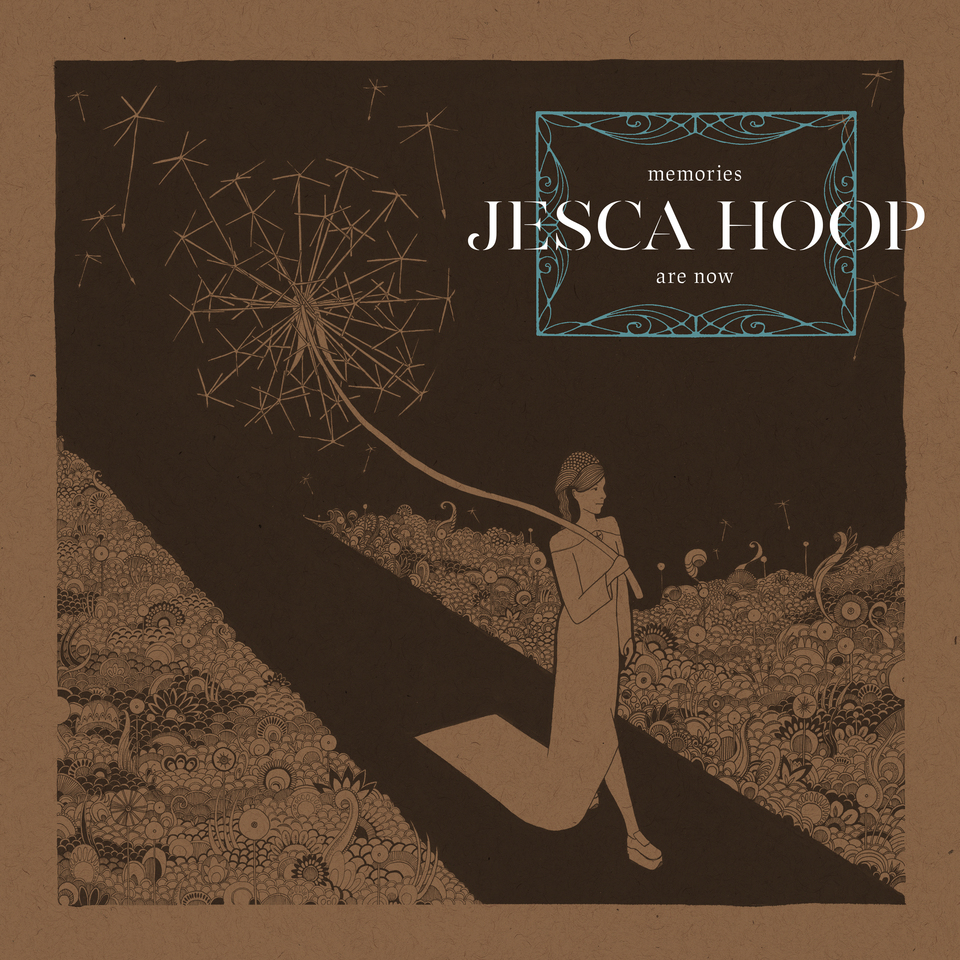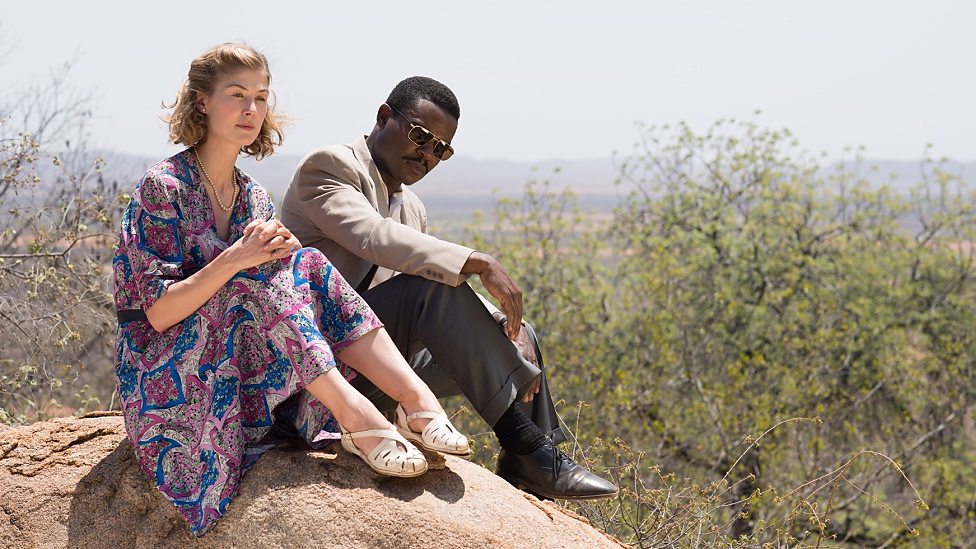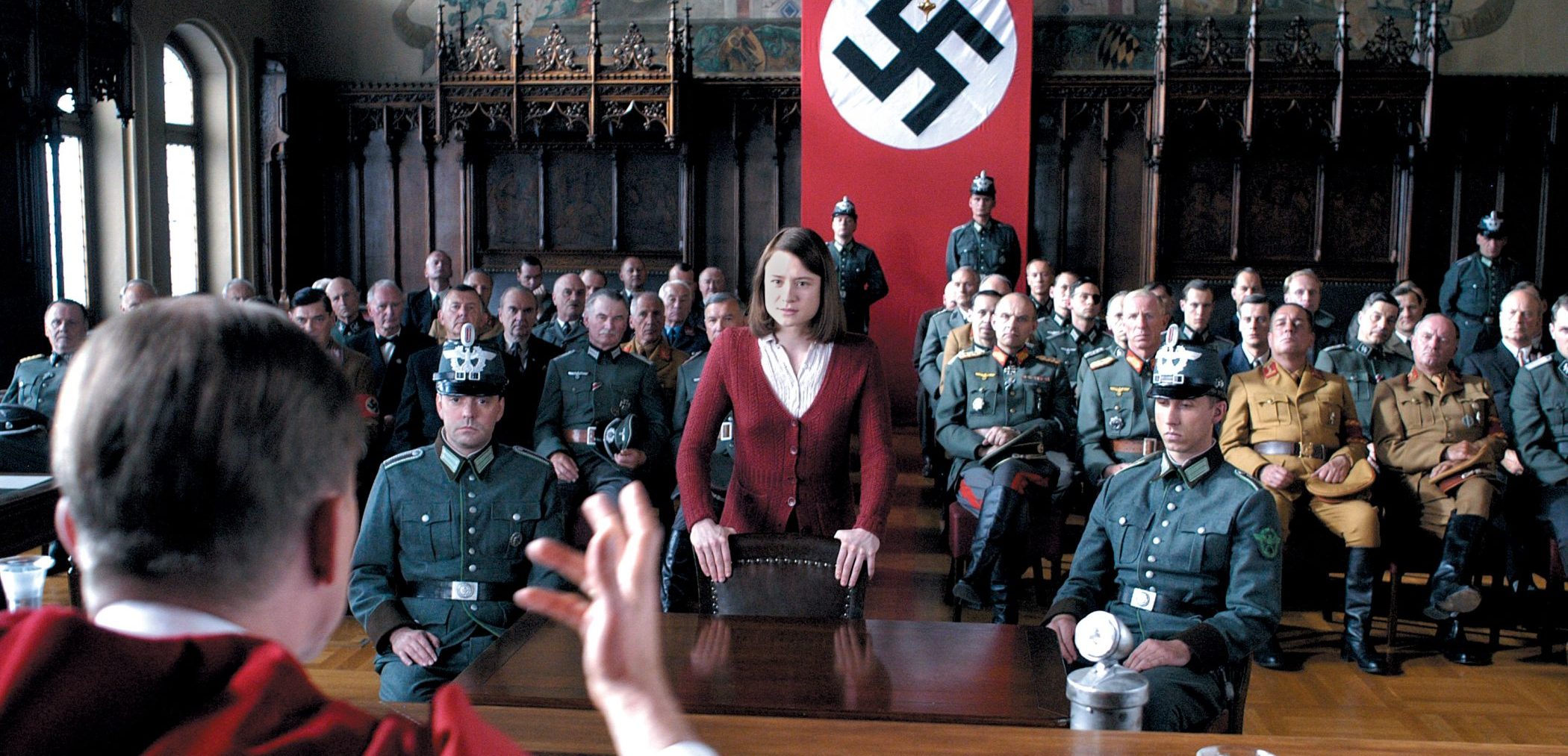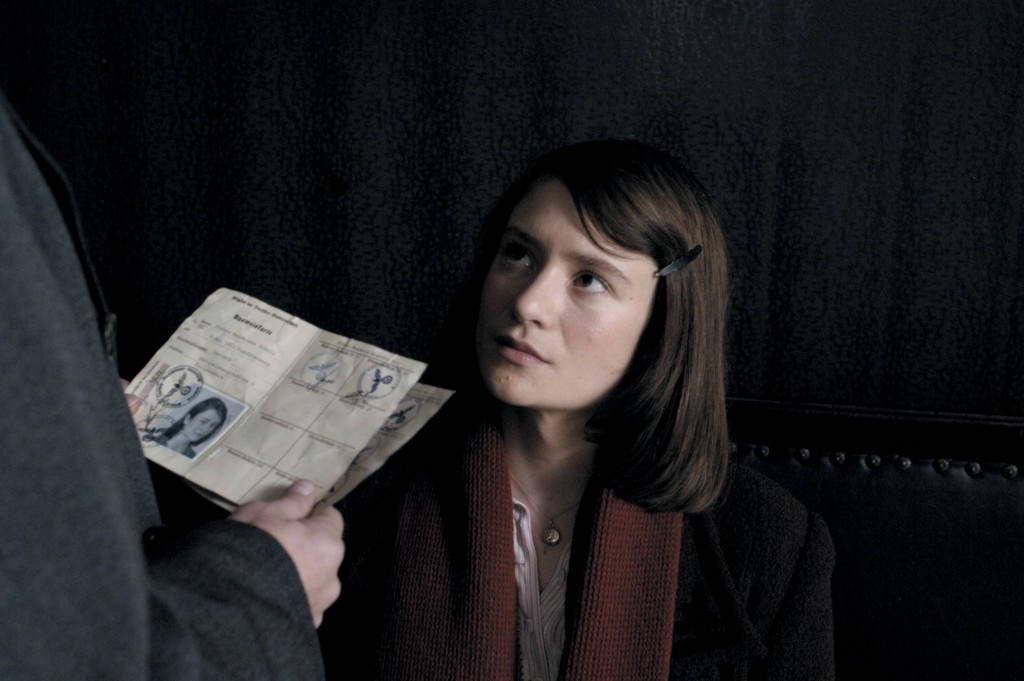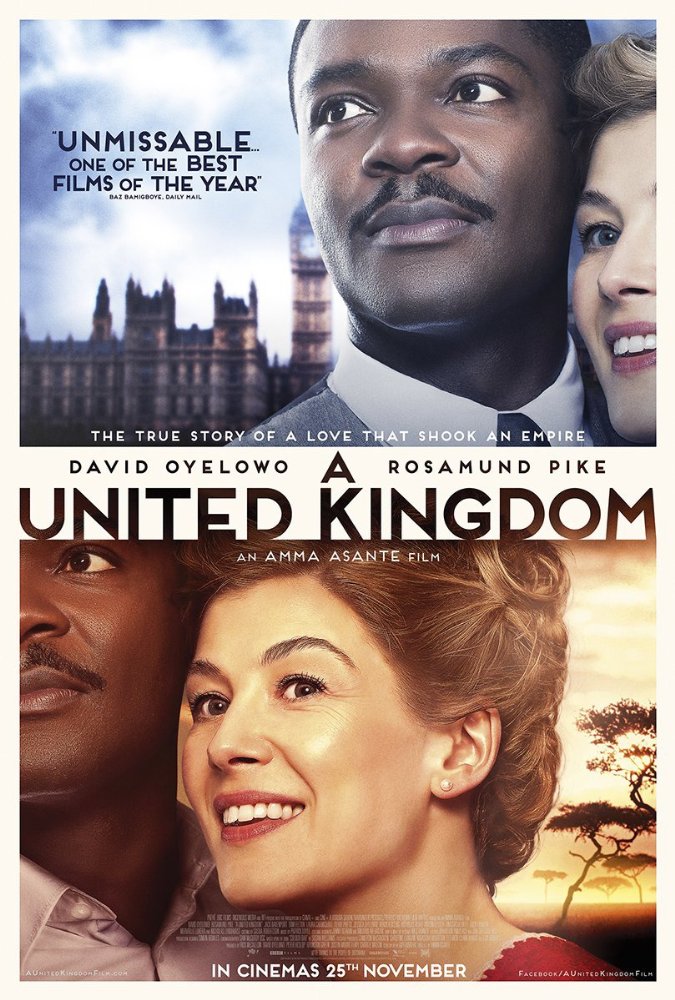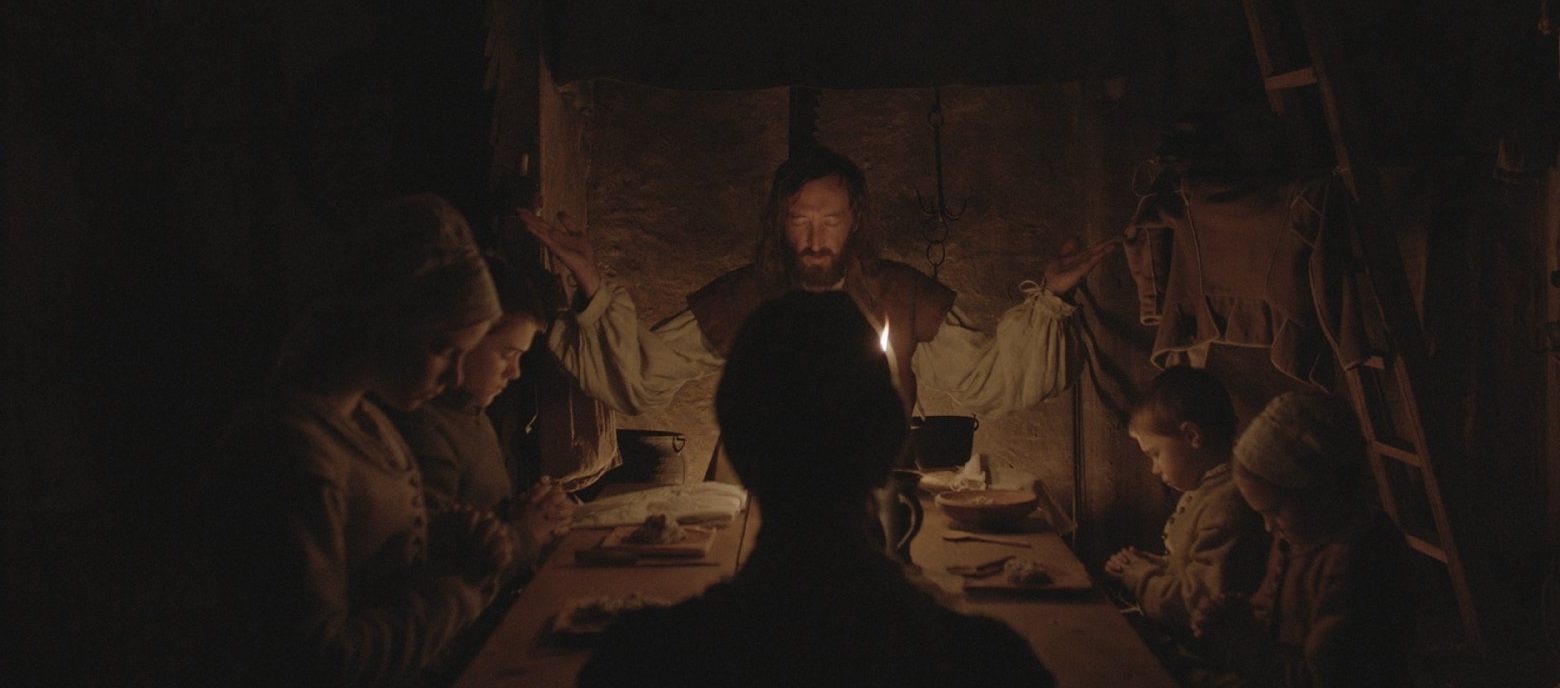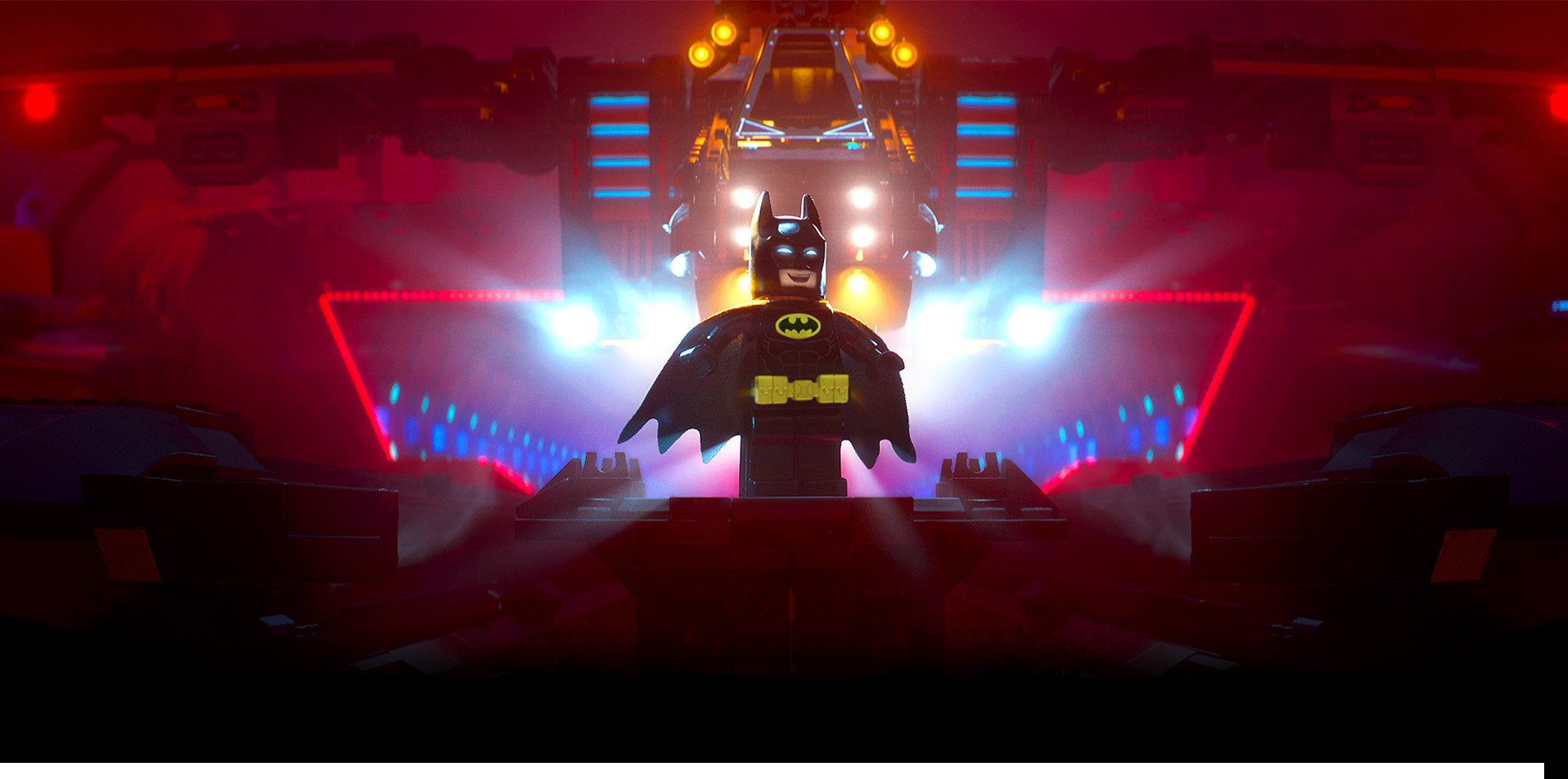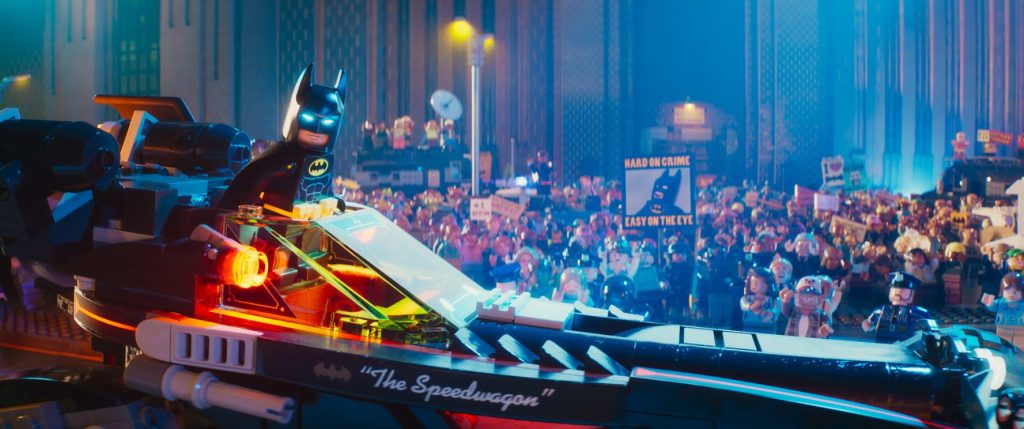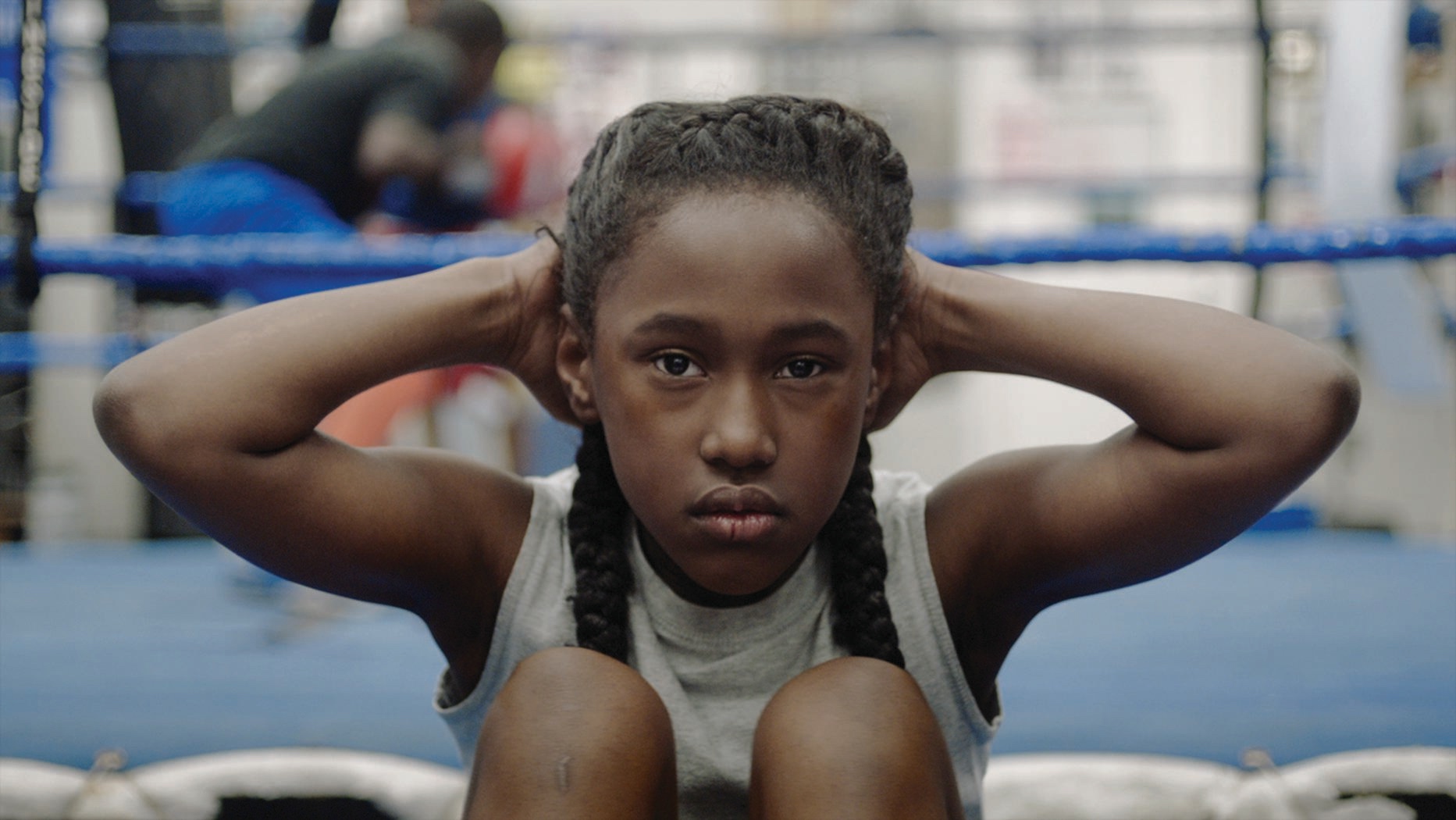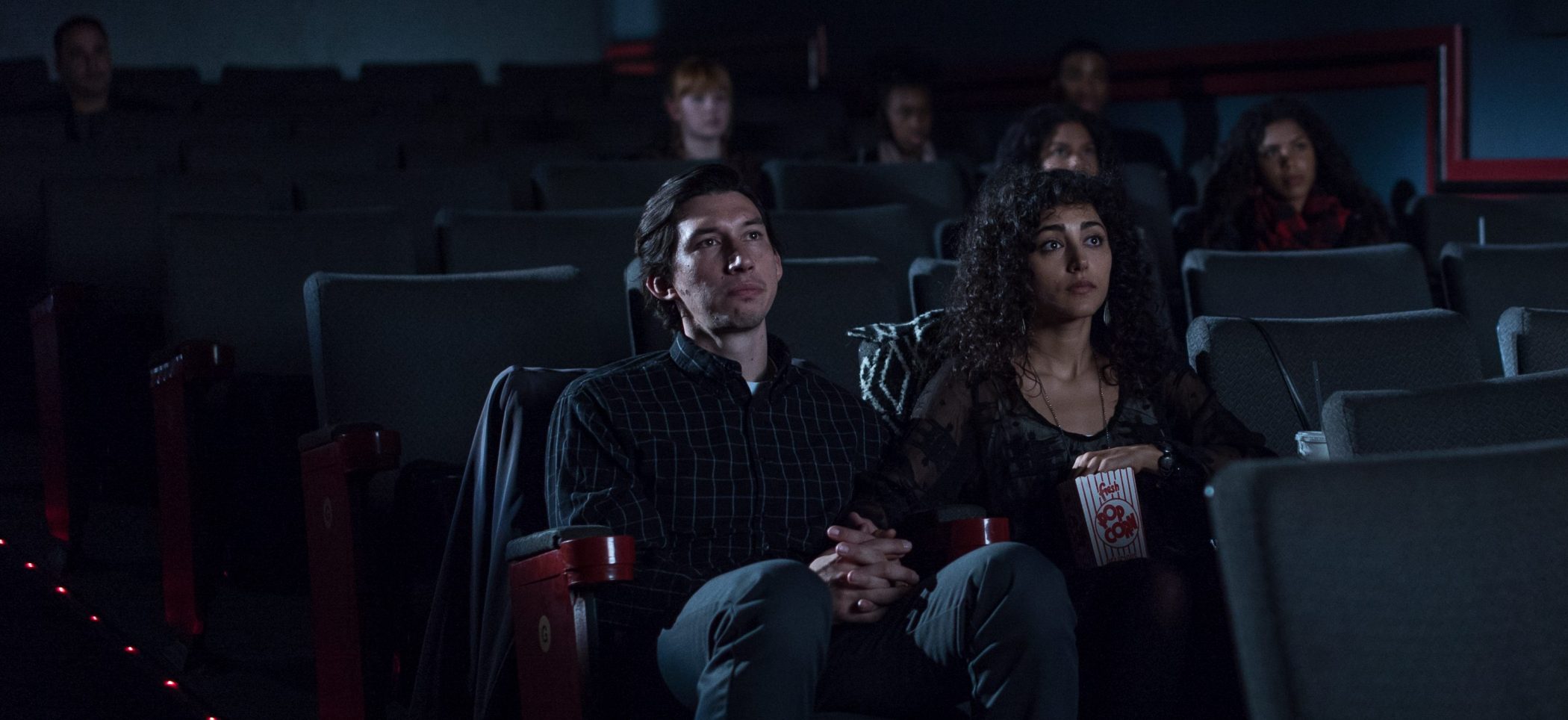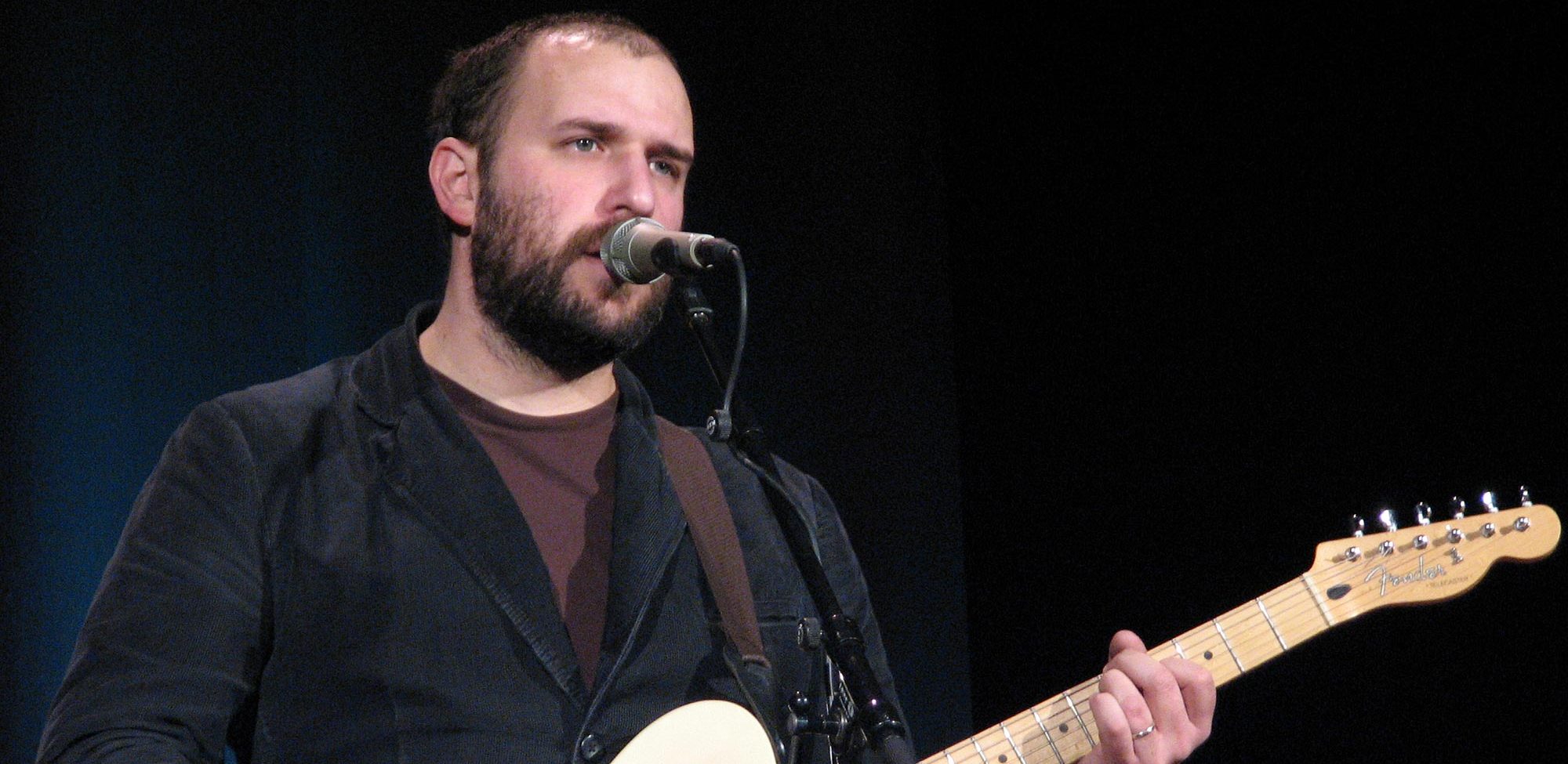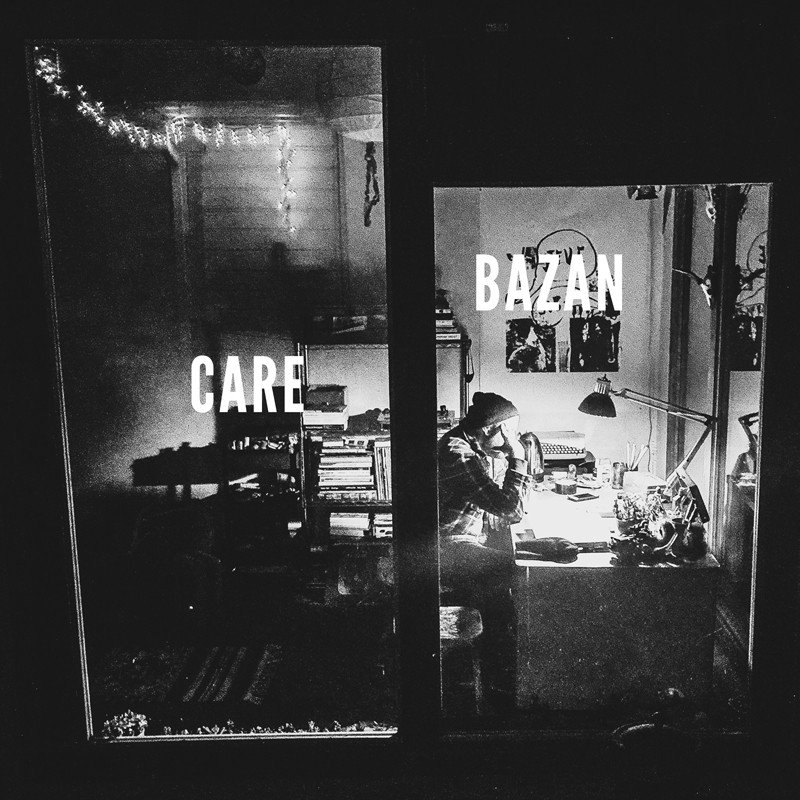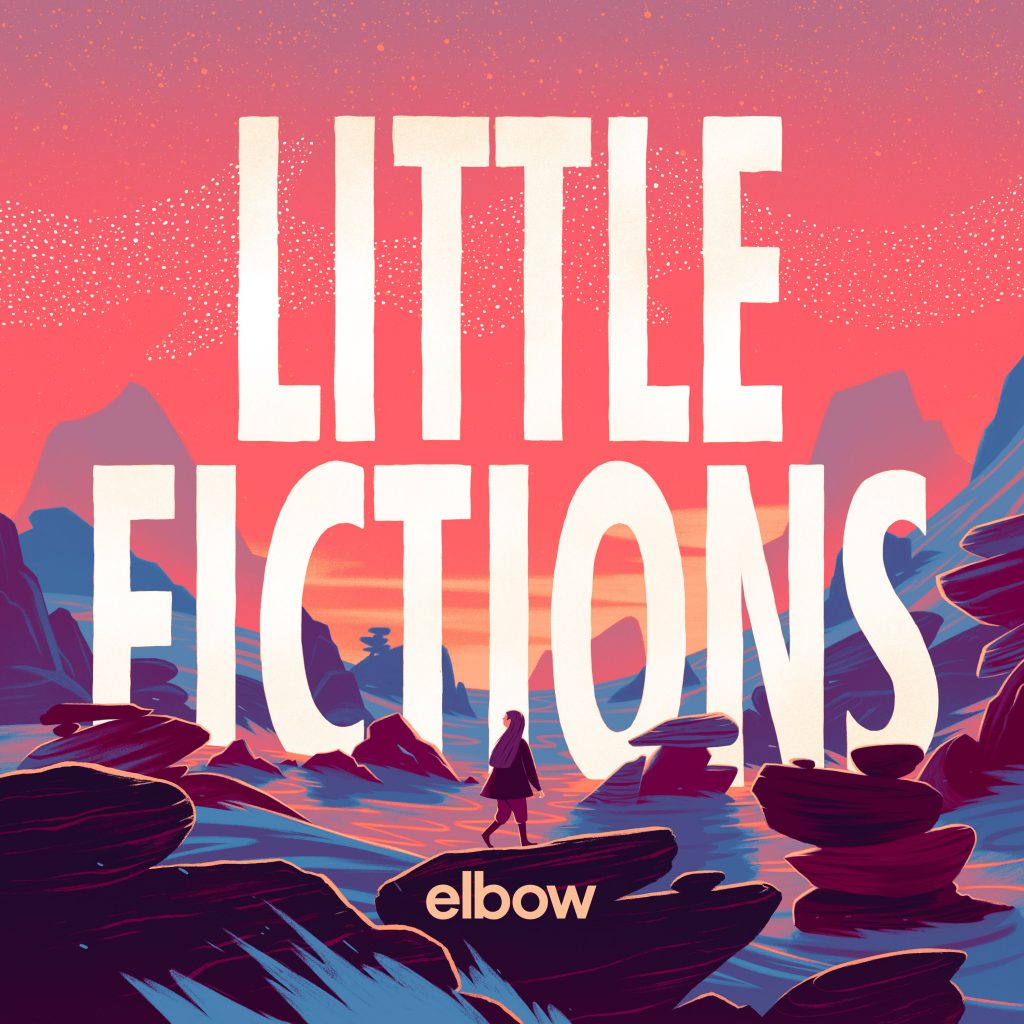Jesca Hoop's faith frustrations
Perhaps you've been around long enough to remember when, in the late '80s, Leslie Phillips released an album called The Turning.
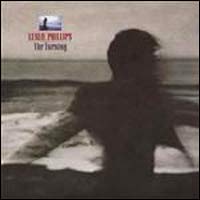 It was a life-changing experience for me, hearing her bravely sing about how she couldn't reconcile her faith-born questions with the judgmental certainties of Christian fundamentalism. The Turning was the prelude to her transformation: She changed her name to Sam Phillips, and set about recording the most beautiful and inspiring music of her career.
It was a life-changing experience for me, hearing her bravely sing about how she couldn't reconcile her faith-born questions with the judgmental certainties of Christian fundamentalism. The Turning was the prelude to her transformation: She changed her name to Sam Phillips, and set about recording the most beautiful and inspiring music of her career.
For me, she was the first example of someone refusing the comforts of the "Christian music industry" in order to find greater freedom of expression — specifically, the freedom to sing about doubt.
Since then, I've heard many who seem inspired by her example, including some who determined to avoid "CCM" to begin with, to avoid "playing to the crowd" or "preaching to the choir." Faith-driven art is, by nature, risky and unsafe. It can lead an artist away from the familiar parlance of the "faithful." It can result in work quite contrary to what people want to hear. It can teach the artist to speak in new and challenging vocabularies. It can result in art that sounds like foreign languages to those who would rather avoid culture than engage it.
The stereos of the 2000s rang out with the sound of singer David Bazan's public departures. He left his popular band Pedro the Lion, a favorite of Christians who tuned in to indie rock. But Bazan also made it clear that he was done with the pressures, the hypocrisies, and the compromises he had experienced in evangelical fundamentalism. And he went on to record the most exciting, unnerving, and soul-searching work of his career on album called Curse Your Branches.
Then, in 2015, we heard Torres (Mackenzie Scott) singing about her own confusion about her childhood church experiences. Sprinter was a portrait of a woman seeking a vocabulary of faith that would not require her to carry a spirit of condemnation or self-righteousness, and it was fantastic.
This year?
It's Jesca Hoop.
Hoop got my attention last year when she collaborated with Iron & Wine's Sam Beam on a lovely record of duets called Love Letter for Fire. On her new solo record called Memories Are Now, she's singing her heart out about the disillusionment she feels about her own religious-fundamentalist upbringing.
For Phillips, Bazan, and Scott, it was evangelical Christianity. For Hoop, it was Mormonism. But in every case, frustrations with religious legalism, rejection of a community's preoccupation with judgment, and an earnest desire for grace and freedom inspires these artists to their best — and most beautiful — creative work.
Memories Are Now is a stirring, brave, and soulful lament over the letdowns of a religious past, but also a refusal to give up hope in the power of love and the promise of mercy. She sings,
I refuse to think that my best friend's going to Hell anymore
And condescend to offer her a key to her salvation
Like it's something I have and can afford.
...
But that is not the meaning or intention of the teaching
Or the truth from which the message came
And I can't turn a blind eye to centuries of conflict
And wrongdoing in his name.
That doesn't sound like apostasy to me. It sounds like an awakening of conscience.
Even better, the music is richly layered, wildly inventive, and full of surprises.
Don't miss this record — one of the first albums of 2017 to make me sit up straight, listen closely, and play it through repeatedly.
Listen to the whole thing here, for a limited time:
https://www.youtube.com/watch?v=wM8JrJyCZQk
[This post is possible thanks to the support of the Looking Closer Specialists. If you appreciate what you read at Looking Closer, consider making a contribution toward covering the costs of keeping it alive. Small contributions make reviews like this possible. Large contributions enable me to make significant improvements in the quality and frequency of the posts.]
Inspiring lovers in an uninspired movie
Remember the love story of Aragorn and Arwen — the Man Who Would Be King and the Eyebrow-Pencil Elf, both of them signing on for civil unrest and personal heartache by pledging themselves to one another? Remember how this infuriated her father, who did what he could to keep them apart?
We know how that turned out. After tears and trouble and promises and heartbreak, the result was... a united kingdom!
That just happens to be the title of a new and not-so-fictional 1940s drama. A United Kingdom is about another pair of lovers so passionately smitten that the production might have been better conceived as an opera.
Amma Assante, director of Bella, must have jumped at the chance to tell this epic story, one so fraught with "You've Got To Be Kidding Me" twists and turns that it's a wonder it hasn't already turned into a multi-episode Masterpiece Theater event starring Idris Elba and Sienna Miller. Perhaps it's for the best. A United Kingdom arrives in a timely fashion, as conscientious moviegoers have an urgent need to see some inspiring stories of victories over racism — especially some examples of undeniably joyous and appealing interracial marriage.

But I can't help thinking that this movie could have brought together the Man Who Would Be King of Botswana and his beautiful English clerk more persuasively if it has been given the running time of a mini-series. Alas, screenwriter Guy Hibbert tells the tale with an annoyingly unimaginative matter-of-factness, as if someone's set a two-hour timer for him to complete his storytelling.
I wouldn't be surprised to learn that Assante wanted three hours to unpack such lengthy, complicated story, but the studio gave her only two. I have no evidence that this was the case, save for the narrative's breathless pace — you can feel the editors watching rough cuts and lamenting that each sequence needs to be 30 seconds shorter. I can't remember any sequence playing long enough that it felt like, well... a scene. And I lost track of how many moments began to show promise, but then leapt forward in time and space so fast that my film-reviewer's note pad was useless, busy with incomplete sentences. At times, it feels like one of those high-speed, community-theater versions of Shakespeare, with the actors dashing about and changing costumes even as they deliver their lines.
The result is a movie so impatient with politics, and so (disappointingly) uncurious about the culture that King "Don't Tell Me Who I Can Love" and Queen "Throw Caution to the Wind" will have to rule, that if its central love story didn't work, there would be very little worthy of our attention at all.
Fortunately for moviegoers, Assante's two leads are so adorable and charismatic together that it's easy to root for them.
It's a case of perfect casting.
David Oyelowo, who was Selma's charismatic Martin Luther King Jr., plays Seretse Khama, bringing similarly dutiful nobility to this role, but with a little more humor and tenderness. He'd better change things up quickly, though. He's in danger of being typecast.
We're blessed by the always-radiant Rosamund Pike in the role of Ruth Williams. Pike tends to shine brighter than anybody else in whatever movie casts her (including Gone Girl, An Education, and, I would argue, Joe Wright's Pride and Prejudice), and that's the case here as well.
These two give us the kind of love-story model that parents could easily watch with their kids without blushing. That's a fact that, I admit, I found a bit disappointing. One gets the feeling there might be even more, um, enthusiastic footage left out. Pike in particular throws herself into this as if Oyelowo is the actor she's always wanted to love onscreen.
The film's surprisingly high Rotten Tomatoes score may reflect the fact that the soon-to-be-royal couple are charming enough to make tomato targets out of anybody who stands in their way — which, in this case, seems to be the whole wide world. And that includes her father, her neighborhood, her government, his uncle, his sisters, and his people.

As the most despicable obstacle of all, Sir Alistair Canning (the name itself screams "Pain in the Crumpet!"), we get the unfortunately named Jack Davenport. Davenport's familiarity to fans of Pirates of the Caribbean may incline them to suspect that he's actually trying to steal this African's king's bride for himself. (He's not; Sir Canning is already married to a woman who looks like a villain from Sherlock.)
Canning seems to be waiting around every corner, eager to deliver more bad news that will spoil the lovers' wedding, honeymoon, marriage, and eventual parenthood. He's so convincingly nasty, I wondered if maybe he's venting some deep resentment at the world-conquering success of his younger model — Benedict Cumberbatch. I half-expected his face to spontaneously generate a standard-issue Villain's Mustache just so he could twiddle it. (Leave the mustache twiddling to Rufus Lancaster, the district commissioner, played by Tom "Draco Malfoy" Felton, still the big screen's most punchable face.)

You'll notice that I'm not divulging the complicated details of this historical, intercultural scandal — and that is, in part, because the movie digs about as deep into those complexities as a high school history paper. If I explain it all here, there won't be much left to surprise you.
Suffice it to say that Seretse is in England to study and prepare for his eventual inheritance of Bechuanaland's throne. Of course, all we see of him there are his moves in the boxing ring (he's a fighter, you see!); his magical love-at-1st, -2nd, and -3rd-sight entanglement with Ruth; an abrupt proposal; and the inevitable shows of unenlightened distress from family and community (including, of course, Seretse defending his honor against racist bullies as he walks Ruth home from a date).
Though Seretse wants to bring Ruth back to Africa, he warns her of troubles ahead. She's blinded — or at least a little deluded — by love, and signs on for the marriage anyway. Surely, in the real world, these two brought more intellectual rigor to their commitment. Here, they just seem sweet and naive. I confess that I, at times, feel some sympathy for the exasperated officials who seek to keep them apart, thinking, "Seriously, how many lives are at stake here? Are they really so blind to the potential consequences of this engagement? This sort of thing could spark a war!"
Whatever the case, Ruth soon finds herself a stranger in a strange land, the recipient of relentlessly critical scowls. Bechuanaland is a British protectorate alongside South Africa, you see, where the rising specter of apartheid threatens to make the natives' lives miserable, and the pending discovery of "mineral assets" jeopardizes any claim that the people have on their home and their future. Why would they want a white queen?
Well, it must have been a devastating drama to watch unfold in the news of the day. And I can't imagine what it took for Ruth and Seretse to endure what they did. But here, the farther the movie draws us into the drama, the more we lose our grip on the lovers who enchanted us in the opening act, until the movie becomes an inevitable countdown to the moment when the strategy in casting Oyelowo becomes clear, and he gets to make his Oscar-highlight speech — a rallying cry worthy of Aragorn himself. But it feels like too little, too late.
Leaving the theater, I found myself trying to recall a single memorable image in the film's full running time. Oh, there's pleasure in seeing two excellent actors find chemistry like this. But the movie's most significant effect is in how it makes us marvel that this story ever took place, that it could really be true. That, in itself, is a hope-inspiring thing. And perhaps, in this deeply troubling season, as the world's hopes for peaceful multiculturalism seem dangerously close to collapse, that is enough.
Scary but true: Time to watch Sophie Scholl
On January 19, The Washington Post published an article by Tyler Huckabee called "Christians say Hollywood ignores them. But they ignore great films about faith."
This was no surprise to me. I've been writing about films that fit this description for decades now. And one of those films — a movie that earned critical acclaim and left audiences breathless — is worth mentioning today for a variety of reasons.
1.
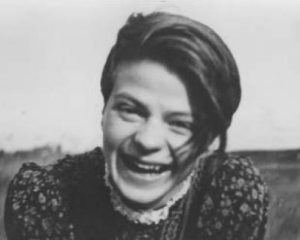
Today, film critic Steven D. Greydanus noted on Facebook and Twitter that in 1943, on this very date — February 22 — the extraordinary story of Sophie Scholl, who dared to resist Hitler's rise, came to its unforgettable conclusion.
Then he said, "If you haven't seen Sophie Scholl: The Final Days, let me try to convince you why you should."
You can read his review here, in which he describes the film as "a riveting portrait of a young woman of formidable intellect, dogged self-possession, and excruciatingly steady nerves."
But I'd actually recommend that you watch the movie first.
Just... trust Greydanus.
And trust me, too. This movie will make a stronger impression on you if you don't know the story ahead of time.
Sophie Scholl: The Final Days is edge-of-your-seat filmmaking, with an remarkable lead performance by a young actress named Julia Jentsch. I was so impressed with Jentsch, I argued in my own review (which, to my surprise and delight, won an Evangelical Press Award) that she should have been a front-runner for Best Actress at the Oscars that year. You can read my original review here.
But again, don't read my review until you've seen the movie for yourself.
And this brings me to the second reason that you should see Sophie Scholl: The Final Days today...
2.
If you're a subscriber to Amazon Prime, you can watch it for free. You can also rent it on several streaming platforms. But why bother?
It's streaming, free of charge, in its entirety, on YouTube!
So... here you go. Brace yourselves. This is a true story.
And perhaps it's the scary truth of it that prevents it from being named among the most important films yet made about courageous Christian faith.
https://youtu.be/nXtC08tWxqA
(Thanks to Susan Reindl Schickel for bringing this to my attention.)
A United Kingdom's Oyelowo: "Sacrificial love."
Here's a perfect post for Valentine's Day.
Over at Movie Mezzanine, Kristen O'Neal talks with David Oyelowo, who played Dr. Martin Luther King Jr. in Ava DuVernay's film Selma, about the interracial love story in A United Kingdom. It caught my attention because I have plans to see the film next week.
The subject of faith comes up in their conversaton and, well, here's today's sermon on love:
"You know, I think we’re very used to seeing lust on film being basically made to look like love, and I would argue the two things are quite different. In coming across this story, this felt like evidence of love, and not just love in a kind of Hollywood way. Sacrificial love, that kind of love whereby you are going to put yourself on the line, you are going to give to another person without the thought of getting back. And for me personally as a Christian, the greatest evidence of that in my life has been Jesus Christ, in terms of what he did on the cross for me, and I believe for the world. So I’m sure one of the reasons that really I was so inspired by these two is because again, what they did for each other, for Seretse’s country, was an act of sacrificial love."
Warning: The Witch is just the beginning
I was lucky enough to start reading work by Lauren Wilford when she was still an undergraduate at Seattle Pacific University. Just a few years later, here she is — the senior editor at an extraordinary film journal called Bright Wall Dark Room, where she's quickly becoming one of the most compelling writers in film criticism. I find myself bookmarking her articles and waiting, knowing that I will need significant time and attention in order to appreciate the scope and substance of what she's doing.
Wilford's recent essay "Witch-Craft: Why Robert Eggers is Our Next Great Filmmaker" is a perfect example of this.
I highly recommend that you read the whole thing, even if you're steering clear of the movie because, well, you want to be able to sleep without nightmares. There is a lot of wisdom in this piece, not just from Eggers but from Wilford herself as she considers the relationship between Eggers's creative process and that of other ambitious artists. It's an essay about a subject that is close to my heart: the ways in which great works of art defy our efforts to paraphrase, categorize, "solve," or narrowly interpret them.
Wilford writes:
One has to peel back a few layers of accreted cultural criticism to get to what The Witch actually is, as a film. If you get through talking about whether it’s feminist or anti-Christian or, in fact, not feminist enough, there’s another debate behind that one: is The Witch even a real horror film?
Here's one bit that really got my attention:
I tend to take note whenever artists talk about what first inspired them to go to work, especially if they insist that it all began with "an image." That's what C.S. Lewis said about the origin of The Chronicles of Narnia. And it rings true to me — that's how my own stories begin: with images, not themes or agendas. That's why I lean forward when I I hear an artist shrug off praise of his work as "relevant" or "significant."
And now this...
Eggers is clearly savvy to the issues his script [for The Witch] raises, and the years he spent researching for the film have provided him with lots of insight into the meaning of the witch as a symbol. But he’s adamant that he didn’t make the movie to make an ideological statement: “I don’t say, ‘This is an idea that I am thinking about, that I want to explore using the past’—I don’t do it like that. Often, it’s just a series of images and an atmosphere that is compelling to me, and then in doing my research, the story emerges.”
I could go on, but I want you read Wilford's work and Eggers's comments in their proper context. Time may well prove Wilford's predictions true regarding this filmmaker's importance. The Witch may be the beginning of one of the most exciting American film careers in recent history. But that's not what this essay is really about: It's about the mysterious forces that bring art about, and about the rare wonder of an artist attentive enough, and focused enough, to serve a vision.
Find the time. I doubt I'll read anything film-related quite as substantial as this for a long time to come... at least until the next issue of Bright Wall Dark Room.
Lead the way, Lauren. You're the professor now.
The LEGO Batman Movie trumps expectations
When, during an early scene of The LEGO Batman Movie, my opening-weekend audience was surprised by a Jerry Maguire joke and laughed appreciatively, a little girl sitting next to me — she might have been six years old — scowled, shook her head, stood up, and announced to her mother, "This isn't funny at all. It's a joke about a grown-ups' movie!"
I felt as if I was present at the birth of a film critic. And I was more than a little tempted to lean over and say, "Kid, I hate to break it to you, but this is a grown-ups' movie."
The LEGO Batman Movie is many things. I expected some of them: It's a rowdy, relentless, visually busy LEGO-stravaganza, bursting with references to every previous manifestation of the Caped Crusader. It's a chance to turn loose the mad genius of Will Arnett, who made this masked interlocked-blockman the funniest thing about The LEGO Movie. It's an advertisement for a dozen or more Batman-specific LEGO sets. It's a massive commercial entertainment that makes fun of massive commercial entertainment. It's more proof that LEGO prioritizes writing: This time, the comedy supergroup includes Seth Grahame-Smith, Chris McKenna, Erik Sommers, Jared Stern, and John Whittington. Under the direction of Robot Chicken veteran Chris McKay, it consistently serves up about 10-20 good laughs per minute for a generous 105 minutes. Holy joke-density, Batman!
But the movie is also something I didn't expect. It was the master storyteller Madeleine L'Engle, author of A Wrinkle in Time, who said that, when pondering a narrative that will illustrate complex and challenging concepts, "[I]f the book will be too difficult for grown-ups, then you write it for children." And that is what The LEGO Batman Movie does. Whether this is intentional or not (and it's hard to believe that it isn't), this massive blast of hilarity acts like a stealth bomber running an urgent raid on the American conscience, trying to blast us into seeing the foolishness of looking to one egomaniac to save the day, and coaxing us to realize that the only way to hold the world together is to reach out, interlock with one another, work together, and be a community.
Sure, it's simplistic. It's for kids! It's about colorful toy building blocks!
But it's also — how I hate this phrase — "timely and relevant." How do I say this, except to tell you how much cathartic pleasure I found in the nature of this movie's comedy?
First of all, I have an allergy to comic book superhero movies that suggest we should look to celebrity-status, super-powered man-splainers to save the world. These writers see the problem and skewer it.
Second, I cringe at movies that suggest that those super-men will repair our broken societies through the efficiency of their coercive violence. These writers see that problem too, and skewer it.
Third, and most importantly, this grownup found particular pleasure in hearing a packed theater laugh at the childish lunacy of a billionaire who
- thinks that he alone can solve problems;
- brags about the greatness of his brain;
- thinks that he is the best at everything;
- wants his name and logo on everything;
- thinks it's all about him;
- doesn't pay his taxes and boasts about it;
- laughs at the new commissioner's emphasis on laws, ethics, and accountability; and
- throws tantrums like a spoiled child when he doesn't get his way.
Sound familiar? If a whole audience can laugh at this, maybe a whole country can too.
No?
Well, it feels good to think so for a few moments, anyway.
There are, I admit, a few things in The LEGO Batman Movie that have me scratching my head.
Sure, it's packed with superhero movie cliches, like the hero being haunted by his self-imposed loneliness, and the danger to Gotham City manifesting as a whirlpool of evil in the sky. For some reason, this didn't bother me the way it usually does — perhaps because I tend to imagine that LEGO stories are supposed to be built from the standard genre building-block sets. That's kind of the fundamental joke that makes the series work. I expect familiar tropes in this franchise, and I'm pleased with how imaginatively they're realized. (Look at how The LEGO Movie used a standard Western Genre Saloon Scene as a portal to a typical Hero's Mentor Training Site a la The Empire Strikes Back and The Matrix. The building blocks are familiar — it's all in how those standard-issue storytelling sets are inventively locked together.)
But, without spoiling too much about the movie's narrative — in which the primary conflict is between Batman and his favorite nemesis, The Joker — let me say that the storytellers run into some strange complications when they start building up a team of classic villains to carry out the Joker's plans.
Just as The LEGO Movie surprised us with characters from across the world of franchises, The LEGO Batman Movie is surprisingly uninterested in limiting its cast to characters from comic books. I'm fine with the absurdity of this — but do the storytellers really understand the characters they're drafting for the opposing team?
Since when is King Kong a "classic villain"? I always thought he was a sympathetic, misunderstood innocent.
And Sauron? Sure, he's the ultimate fantasy villain, but anybody who has read The Lord of the Rings will call out this unblinking eye as a fraud.
Anyway – I'm nit-picking when I should be celebrating. While I agree with Decent Films' review that this film doesn't have that take-it-to-another-level greatness of The LEGO Movie — which remains, in my opinion, the single most expectation-busting, hope-surpassing success in animation history — I do think that this sequel succeeds brilliantly at undermining, exposing, and laughing at the worst instincts of the superhero genre... even as it manages to celebrate what real society-saving super-heroism might look like: cooperation over individualism, family over patriarchy, creativity over smashing things.
Another plus: The voice casting, which is full of surprises. Any Batman movie with the good taste to cast Rosario Dawson as "the girl" — and then make her the smartest hero in the film — is a good one. And while it was smart to cast Zach Galifianakis as The Joker, and inspired to cast Unbreakable Kimmy Schmidt's Ellie Kemper as a Very Important talking LEGO block, it's absolutely brilliant to cast Conan O'Brien as The Riddler — a choice that makes me wish we could see such this perfect actor/character match in a live-action Batman film.
And speaking of creativity: As I mentioned earlier, the joke density of this film holds up The LEGO Movie's astonishing standards. It's going to reward repeated viewings, because everything happens so fast that you're just getting one clever reference to Christopher Nolan's bat-franchise when references to Tim Burton's and Zack Snyder's zoom past your head like Batman's throwing stars. It goes a little too quickly for crass, sophomoric humor (there is a Family Guy writer on the team); we get the Joker declaring "Hey Batman! I'm rubbing my butt all over your stuff! Gonna have to rename this the 'Buttmobile.'" But for every easy joke there's another one that's both brilliantly conceived and effortlessly delivered.
At times, the frantic pace of the humor threatens to become frustrating, and it's worth noting that the movie's funniest bit is also its quietest and most patient (it involves a microwave oven and a lobster— you'll know it when you see it). But I can only marvel at a comedy with such a successful hit-to-miss joke ratio.
It's a rare thing to see a movie that spoofs all of the others in its genre while beating them at their own game. No disrespect to Heath Ledger and the writers of The Dark Knight, one of those rare superhero movies that deserves to be treated as a substantial work of art — but this might be the first Batman movie that I find satisfying as a narrative, beginning to end.
Finally, a Batman movie in which the filmmakers seem to perceive Bruce Wayne/Batman as a problem to be solved, not a hero to be exalted. They hold him accountable for his fundamental character flaws, refusing to ever let him off the hook for his arrogance. Silly as it all is, this movie refuses to glorify the egomaniac, and sticks to its convictions all the way to the end, cutting the Caped Crusader down to size in a way neither Burton, nor Nolan, nor Snyder have ever dared.
The first official 2017 feature film I've seen is satisfying enough that I'll go see it again. This franchise is two for two.
Overstreet's Favorite Films of 2016
"Whaaaat? You didn't love La La Land?"
I liked La La Land. It reminded me of musicals that I love. I just liked other musicals better this year. (And I think I enjoyed Emma Stone's lip-synch contest with Jimmy Fallon just as much or more than her performance here. It just felt even more spirited and spontaneous.)
"Where's Moonlight? Most beautiful movie of the year!"
I liked Moonlight. Some of it was very beautiful. I just kept waiting for the central character to come to live as a character, instead of merely being a walking target for harm. Some of the supporting characters made strong impressions. But where was the film's curiosity about Chiron? I liked its poetic cinematography, and there were moments, like the "Learning to Swim" scene, that moved me. I just happened to like 25 movies better than that one.
Don't worry — those two will win most of the Oscars, so they don't need me to convince myself of their importance. And who knows? Second viewings change everything. Give me time.
Okay, that's enough with pre-emptive strikes. Let's get right down to business... because it was a great year at the movies. And, as usual, the films that will win almost all of the Oscars made insignificant impressions on me compared to these...
26.
Doctor Strange
Directed by Scott Derrickson, and written by Scott Derrickson, C. Robert Cargill, and Jon Spaihts.
Here's a link to my reflections on Doctor Strange, which is, I believe, my favorite Marvel movie yet. This was published in my "Viewer Discussion Advised" column at Christianity Today.
https://www.youtube.com/watch?v=HSzx-zryEgM
Thanks also to everyone who has been teasing me about an apparent resemblance to the main character. (Someone posted this on my classroom door on the evening that my film class was canceled due to snow.)
25.
Knight of Cups
Directed and written by Terrence Malick
I never published a review of this for you. I did, however, post my first impressions on the private Facebook group for the Looking Closer Specialists (those who contribute to keep this site alive). I'll go ahead and share that post now, over at Letterboxd, in case you're interested.
https://www.youtube.com/watch?v=SI2j1FHCjtM
24.
The Nice Guys
Directed by Shane Black, and written by Shane Black and Anthony Bagarozzi
This movie has sweetened in my estimation over time. Sure, the story itself isn't particularly memorable. Yes, there are moments that lean into the lurid. But what sticks with me is the rare pleasure of comic chemistry between two talented actors. Crowe and Gosling make this all worthwhile.
After seeing it, I wrote this at Letterboxd.
https://www.youtube.com/watch?v=MxW4LZCYfvs
23.
The Lobster
Directed by Yorgos Lanthimos, and written by Yorgos Lanthimos and Efthimis Filippou)
Can the saddest film of 2016 also be the scariest and the funniest? This just might qualify. I laughed and I cringed and I felt sick, pretty much all at the same time, over and over and over again.
As a sci-fi satire about longing, emotion, and control, The Lobster reminded me of Her, especially in Colin Farrell's take on Theodore Twombly... except that where Her is alive with heart and emotion, The Lobster suppresses everything so much that you're gasping for breath by the end. It runs about 20 minutes too long, as the film's high wire act of wicked comedy and horror starts losing its footing after the plot's pivot point. But this is so perfectly cast. And the first hour gave me that rare, supercharged feeling that I was seeing a masterpiece of dark comedy unfolding before my eyes. I will revisit this film — for that hour especially.
https://www.youtube.com/watch?v=TR_NcqD-Gfs
22.
Almost Holy
Directed by Steve Hooper.
"I want to wash my soul... after this story."
"It's so sad, but... it's Ukraine."
The superhero movie of the year. And it's all true.
https://www.youtube.com/watch?v=2tKQYp8q2i8
21.
Taxi
Directed by Jafar Panahi.
Here's what I wrote at Letterboxd right after seeing this film.
https://www.youtube.com/watch?v=eM2tblIkL4g&feature=youtu.be
20.
10 Cloverfield Lane
Directed by Dan Trachtenberg, and written by Josh Campbell, Matthew Stuecken, and Damien Chazelle.
I walked into this movie to kill some time before a concert, not expecting much. I came out completely satisfied, and almost skipped the concert so that I could enjoy that Great Night at the Movies buzz.
https://www.youtube.com/watch?v=3NABPa211Ko
19.
Loving
Directed and written by Jeff Nichols.
My first impressions are posted at Letterboxd.
https://www.youtube.com/watch?v=33g-ZHBQdNU
18.
Hail, Caesar!
Directed and written by Ethan and Joel Coen.
https://www.youtube.com/watch?v=kMqeoW3XRa0
17.
Arrival
Directed by Denis Villeneuve, and written by Eric Heisserer (based on "Story of Your Life," by Ted Chiang)
Here's my review, which appeared in my "Viewer Discussion Advised" column at Christianity Today.
https://www.youtube.com/watch?v=tFMo3UJ4B4g
16.
Hunt for the Wilderpeople
Directed and written by Taika Waititi, based on the book by Barry Crump.
https://www.youtube.com/watch?v=XGj3AogT9EM
15.
The Mermaid
Directed by Stephen Chow.
I found more imagination — and more laughs — in this comedy than in all of the American comedies I saw last year... maybe the last few years. Stephen Chow is getting better and better. And braver.
https://www.youtube.com/watch?v=UvMk7Z0Sp7E
14.
The Innocents
Directed by Anne Fontaine.
https://www.youtube.com/watch?v=kuW45gBlYRk
13.
Love & Friendship
Directed and written by Whit Stillman, based on the book by Jane Austen.
Here are a few notes I made at Letterboxd the first time I saw it, and then here are more notes from the second viewing (during which my opinion of the film improved significantly).
https://youtu.be/wrKRrnNif90
12.
The Witch
Directed and written by Robert Eggers.
https://www.youtube.com/watch?v=iQXmlf3Sefg
11.
Sing Street
Directed and written by John Carney.
https://www.youtube.com/watch?v=C_YqJ_aimkM
10.
13th
Directed by Ava Duvernay.
https://www.youtube.com/watch?v=V66F3WU2CKk&t=74s
9.
The BFG
Directed by Steven Spielberg.
Here are my reflections on the film from my "Viewer Discussion Advised" column at Christianity Today, and here's a short story I wrote about the film.
https://www.youtube.com/watch?v=GZ0Bey4YUGI&t=65s
8.
Beyoncé: Lemonade
Directed by Kahlil Joseph and Beyoncé Knowles-Carter.
I still haven't had a good opportunity to write about my love and respect for this film. For now I'll just say this: I had the distinct privilege of seeing this on the big screen as the finale of a marathon that began with clips from Charles Burnett's Killer of Sheep and then progressed through the music videos of Kahlil Joseph. Thanks to filmmaker Lee Isaac Chung for the brilliant idea of introducing me to Lemonade in this way. As I'd never seen Joseph's work before, I was thunderstruck by what I experienced. This was one of those "I've just witnessed the work of a visionary" moments.
It also completely changed my perspective on Beyoncé, who makes this series of music videos into a cohesive cinematic experience, one that makes ambitious and poetic art out of her journey through betrayal, anger, grief, prayer, courage, and reconciliation. It also stands as a towering and empowering work for young African American girls and women, educating them on the history of their mothers and grandmothers, who have suffered so much injustice in American history, and who shine like diamonds.
https://www.youtube.com/watch?v=BB5zLq1zcdo&feature=youtu.be
7.
Fences
Directed by Denzel Washington and written by August Wilson.
I've only just seen this, so all I've had time to post are first impressions at Letterboxd.
https://www.youtube.com/watch?v=ZrN5MAYB3kQ&feature=youtu.be
6.
I Am Not Your Negro
https://www.youtube.com/watch?v=rNUYdgIyaPM
5.
Hell or High Water
Directed by David Mackenzie. Written by Taylor Sheridan.
I posted my first-impressions review at Letterboxd.
https://www.youtube.com/watch?v=JQoqsKoJVDw&t=37s
4.
The Fits
Directed by Anna Rose Holmer.
Here are my reflections on this film in my "Viewer Discussion Advised" column at Christianity Today.
https://www.youtube.com/watch?v=z_M_y9j1_gE
3.
Silence
Directed by Martin Scorsese, and adapted by Jay Cocks and Martin Scorsese from the novel by Shusaku Endo.
Here are my initial notes about the film at Letterboxd (the closest thing to a formal "review" that I've written). Also, here's my article at Christianity Today about how this film fits into Scorsese's body of work. And finally, here's my conversation with Martin Scorsese.
https://www.youtube.com/watch?v=tJdd4lDwfl8&feature=youtu.be
2.
Paterson
Here's my review, published in my "Viewer Discussion Advised" column at Christianity Today.
https://www.youtube.com/watch?v=TMGgzbVpovQ&feature=youtu.be
1.
Cameraperson
Directed by Kirsten Johnson.
Here are my initial reflections at Christianity Today, although I feel I could write a book about this film, and how it celebrates so much of what I love best about the power of cinema.
Oh, by the way — it's streaming on Amazon Prime.
https://www.youtube.com/watch?v=jx52F4iLTL8&feature=youtu.be
My favorite film critic's top 10 of 2016
Steven Greydanus of Decent Films and The National Catholic Register has published his Top 10 films of 2016.
It's definitely worth your attention. But of course it is — he's my favorite film critic.
And now I'm frustrated that I haven't finished and published my own list yet, because people are going to think that I'm imitating Greydanus. I'm not. I'm really not. He'll tell you this, because we compared notes earlier — our top three titles of 2016 really are the same, just ordered differently.
Why is my list so late? Well, I'm trying to see as many of the highly rated 2016 films as possible. I missed quite a few due to that crazy pile-up of work and medical crises in November/December. But I'm finally feeling like I've seen enough to share a decent list, so stay tuned....
Bazannouncement!
You may have noticed that I included David Bazan's album Blanco in my top records of 2016 this week.
So you can see why I'm excited about today's news.
This just in:
DavidBazan's fourth full-length studio album — Care — arrives on March 7.
You can pre-order the vinyl, CD, MP3 or hi-res WAV editions now and immediately download the title track.
Good news: This one was produced, recorded and mixed by David Bazan and the always impressive Richard Swift.
Preview the song "Care" here:
The first great album of 2017?
Something remarkable happens when a writer with a golden voice and a gift for lyrics falls head over heels in love.
2016 brought us Radiohead's most sumptuously beautiful album, A Moon Shaped Pool — but those songs bled from wounds of disillusionment, filling deep wells of sadness. As I read the daily headlines about President Bannon's forceful takeover of the White House and his slow-motion ruination of American democracy, mournful music is appropriate, but I need to remember love and joy as well.
Lo and behold: 2017 brings us Elbow's most sumptuously beautiful album! And it's inspired by new love, new dreams, new hopes, launching melodies as graceful as flights of birds.
https://www.youtube.com/watch?v=ONQ25RW585w
Slowly becoming one of the world's most beloved bands, led by Guy Garvey's uncanny vocal resemblance to Peter Gabriel, Elbow are lifting my spirits during hard times with lyrics like these from a hectic commute:
The silence and the waiting and the rush of all aboard
Fifty souls to a carriage I’m trying hard to be ignored
Then my telephone shakes into life and I see your name
And the wheat fields explode into gold either side of the train.
In these days that can so easily be overrun by news of crimes against humanity, I'll gladly embrace any music that reminds of the ultimate triumph of love. Here, Garvey calls love "the original miracle." While he is clearly referring to the true love of a new woman in his life, who's to stop me from taking comfort in the knowledge that all loves are expressions of that sovereign love that reconciles all things and promises us that our tears will, in time, be washed away?
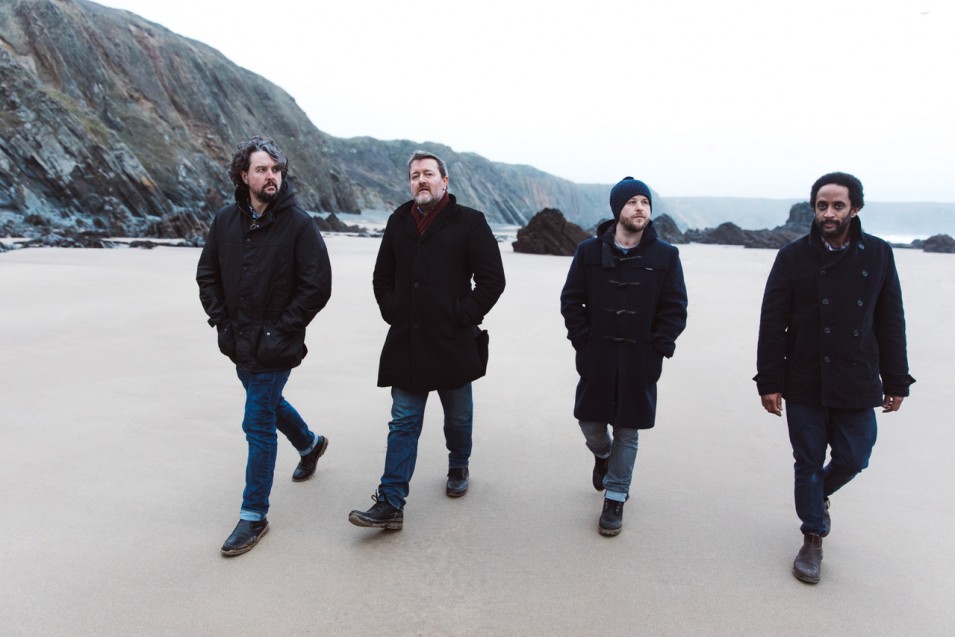
This record's rapture rekindles my assurance of things hoped for, my conviction of things not seen, and my love for my wife, my art, my neighbor, my Lord. Right now, it does a body good.

